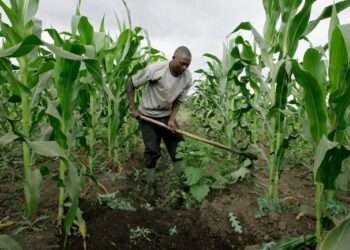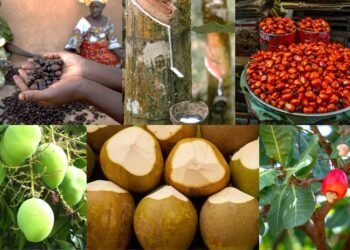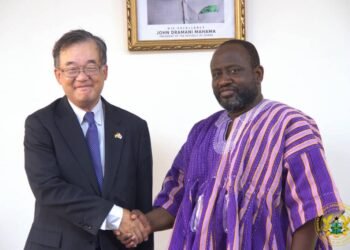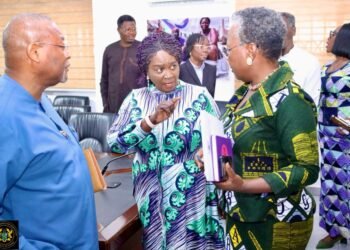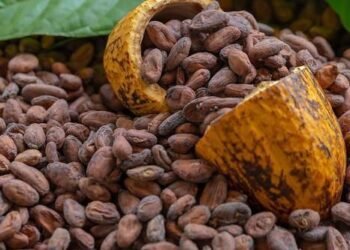The Executive Director of the International Cocoa Organization (ICCO), Michel Arrion, has said an increase in international prices of cocoa beans and their related products will ensure the sustainability of the industry.
“Prices and sustainability are two sides of the same coin. Let us focus on a bigger cake rather than a bigger share of the cake.”
Michel Arrion, Executive Director of ICCO
He, therefore, called on stakeholders to put together their energies to ensure a proper demand and supply chain of cocoa goods across the globe.
According to him, the global increase in cocoa prices should, however, reflect the true price of local cocoa production.
Also, he said, to effectively manage demand and supply, one needed to know the preferential market zones for cocoa. Unpurchased cocoa beans should be channeled to other areas of production such as cosmetics, he added.
Mr Arrion made these remarks on Thursday during a virtual meeting dubbed: “Sustainable Cocoa Dialogue – Ghana.”
Ghana’s Cocoa Sustainability Challenge
Mr Joseph Aidoo, Chief Executive, COCOBOD, indicated that the challenge of cocoa sustainability in Ghana is not caused by farmers but traders.
He said most cocoa trading houses refuses to purchase cocoa from Ghana or Cote D’lvoire to avoid paying the cocoa Living Income Differential (LID) premium aimed at combating farmer poverty.
However, he said Government has increased cocoa producer price by 28 percent to enhance the revenue or income of farmers.
Mr Obed Owusu-Addai, the Managing Campaigner of EcoCare Ghana, said the history of the cocoa industry reflects that governments benefits more from cocoa production to the detriment of farmers themselves.
He said there had been unfair pricing of cocoa beans leading to the inability of farmers to fend for themselves and their family.
Mr Owusu-Addai said the problems of child labour and deforestation associated with cocoa production are only a physical symptom of the financial hardships of farmers.
“If farmers get more income, they will hire more labour and not allow their children to perform those tedious tasks. Also, they will adopt proper and more advanced ways of farming to prevent deforestation.”
He said an increase in global cocoa prices should be accompanied by the enactment of good laws and ensure their enforcement.
“There has mostly been a conflict of policies and laws. For example, the issue of land and tenure makes it difficult for farmers to nurture trees on their land. Also, there is no policy framework to allow access to information. ”
Mr. Owusu-Addai, the Managing Campaigner of EcoCare Ghana.
Farmer Speaks on Child Labour
Mr Kwadwo Solomon Kusi, 2020 National Best Farmer, Ghana, said farmers do not intentionally practice child labour. Due to the dire circumstances they find themselves in, they have no choice, he explained.
“We do not hate our children to put them through harsh conditions. We equally love our children and want them to become very important personalities in future. However, the system in the country leaves us with no choice. But now, due to the Government’s policies on education, our children have a better chance of easily attaining education to a higher level. We want them to be well educated so that they take over our farming businesses in future.”
Mr Kwadwo Solomon Kusi, 2020 National Best Farmer.
He said the National Best Farmers Association was putting together a task force to prevent child labour in farming communities. Also, he called on stakeholders to assist them in the area of irrigation and mechanized forms of farming. This will farmers to escape the effects of climate change. He said good road networks would also enable vehicles and tricycles have easy access to farms to carry cocoa beans. Thereby, relieving their children of that task.
About the Virtual Event.
The event was held to locally mirror the broader “European Union (EU) Multi-stakeholder Dialogue for Sustainable Cocoa” which was launched in September 2020 in Brussels, with stakeholders from Côte d’Ivoire, Ghana and Europe.
The dialogue further aimed at fostering progress in eliminating child labour, enhancing the protection and restoration of the forests. Ultimately, to ensure a living income for cocoa farmers in West Africa.
It had representatives from the Ghana Cocoa Board (COCOBOD), EU and its Member States, and other development partners.




